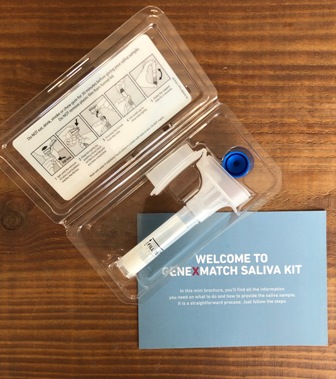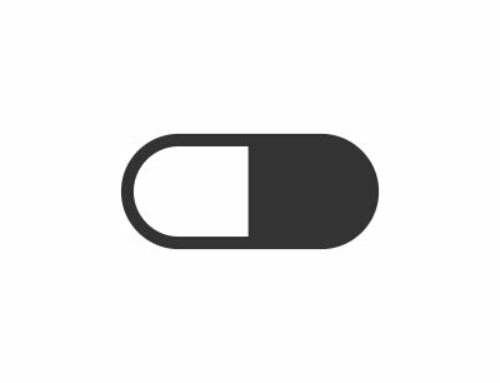How to chose the right sperm donor? Start by asking these questions to your sperm bank!
Women who consider insemination with donor sperm are often very selective and picky.
That’s normal, and actually part of the reason why they decide to be single mothers at some point – their expectations and criteria about who should be the genetic father of their children were high.
Probably, the single most important thing to consider when choosing your sperm donor is finding the right sperm bank, simply because men who are healthy, willing and able to help will also want to deposit their most private information including biological material with the best providers around. That makes sense, right?
There are many more important things to consider; that’s why I have talked to employees of the European Sperm Bank (from Copenhagen, Denmark, with offices in London and Hamburg) and tried to find out answers to your most pressing questions.
Which issues are most important from a woman’s perspective?
And which issues are most important from the perspective of the child that she will bring into the world?
Which clinical, logistic, and emotional factors should be considered and given priority?
Darja Wagner aka Paleo-Mama: Why do women from Germany and many other European countries travel to Denmark for donor insemination? Is your legal situation different? Or is it a different mindset surrounding the process? I recently learned that in Denmark, one out of ten children is conceived in the laboratory; and very often, via sperm donation?
ESB: There are different reasons why European women often travel to Denmark to have their fertility treatments here.
Denmark has been a leading country within the fertility industry in the last years, and we have many good fertility clinics offering various kinds of treatments for all types of families. But now, we see the landscape changing – in Germany for example, as most Germans have started providing treatments for same sex female couples and also opened their doors for treatments of single women.
We welcome this change very much.
We think it’s convenient for women to receive treatment in a known environment and stay in their home towns instead of travelling to Denmark. European Sperm Bank delivers sperm vials directly to German fertility clinics and also supports the entire process closely. Our website and the entire documentation is in German, our staff speaks German, both in Denmark and in our new location in Hamburg.
How to find the perfect donor in a sperm bank – donor catalogue with pictures and other details
Darja Wagner: When women search for sperm donors, they often wish to find the same characteristics they would look for in their partners in real life: good physical and mental health, a certain age; even educational background and talents play a role. How much of this information can ESB provide in donor profiles?
ESB: Almost anything that women or couples look for in “their donor” can be found in our very detailed sperm donor profiles. Everything from the donor’s physical appearance, his personality, his family medical history, and even a handwritten note or a voice recording.
Our donor profiles are actually easily accessible as soon as a woman creates a free profile at the www.europeanspermbank.com. We also recommend our customers to save their donor’s profile, so they have access to it as soon as their child starts expressing interest and asking questions about his origin.
There are obviously many things to consider in the process of donor insemination.
Many women will stand alone when they decide to take this step: some might have just got separated, and some did not have a partner at all.
Sperm donor pregnancy process
Darja Wagner: With the world-wide trend of women postponing motherhood to a later age, there are many reasons for a woman approaching the end of her reproductive age to feel overwhelmed when considering insemination. How much can you help guide them?
ESB: We speak every day with women and couples who need donor sperm to conceive. That’s why we’re very familiar with supporting and guiding them though this stage of their fertility journey. For us, this includes getting both a good understanding of their individual situation and finding out which criteria are for them in order to make a sensitive decision about the donor. Besides the truly extensive information that women can find in donor profiles, we also offer individual counseling and donor matching.
The final decision is of course always up to the woman (or couple), and our best advice is to choose a donor with your heart and also to let your gut feeling speak. Not being alone is also helpful in the process, have someone to accompany you regardless of who that person may be – a relative or a friend.
Darja Wagner: Which methods can you offer to ensure women as much as possible that they will give birth to a healthy child? How can a woman know that there are no serious diseases running in the donor’s family? What is “Gene match”?
ESB: Well, to become a sperm donor at European Sperm Bank men must go through a very extensive screening process. During this process, we take a very close look at the donors’ family medical history going back three generations in order to minimize the risk of the donor being a carrier of a dominant hereditary disease.

Genetic matching with GeneXMatch test
The donors also undergo a full medical health check where we test all the most common serious hereditable diseases. If our medical director deems any form of increased risks on the donors’side, he will not be approved and will not have a profile in our database.
Genetic matching is a very sophisticated test – we pair genetic information of the mothers and their potential donors to predict the risk of the child resulting from this match having a genetic disease. You might now ask: “why is this necessary, you just told me that the donors have been thoroughly tested”. And yes, we do extensive testing of the donors, but the genes of the mother-to-be are just as important in order to predict the health of the child!
Many diseases will occur only when the man AND the woman possess the same errors in a specific gene.
So testing the donor only makes up half the equation and this is why we offer GeneXmatch. With GeneXmatch, we look at more than 390 recessives genes and 12 gender-specific diseases including Fragile X syndrome. The process of GeneXmatch is quite simple: Women provide a saliva sample, and then we match their genes with those of the donor’s. After this, we know if they make a perfect match or not. If this genetic combination gives a risky match, women are asked to choose another donor.
The genes of the mother-to-be are just as important in order to predict the health of the child.
Sperm donors of different ethnicities
Darja Wagner: Sperm donors from Scandinavian countries have traditionally been quite popular among women seeking donor insemination. Do you have other nationalities and ethnicities available in your sperm bank? Assuming that I’m a patient coming from Germany, but having one or both parents originally coming from Turkey or some other country, and would like to pass on this part of my heritage to my child. Would I have a chance to find a suitable donor in the ESB?
ESB: At European Sperm Bank, we can help you find almost all ethnicities. Traditionally, there have been mostly Scandinavian donors available in Europe, because the biggest sperm banks have been located in Scandinavia (though there seems to be some preference among women towards Nordic men too). But despite the popularity of the Scandinavia donors, we sought to have more diversity in our donor base. Recently, we have opened offices with donation facilities in London and Hamburg. Now, you can find donors of all kind of ethnicities, and we expect to offer many more in the years to come. Women with any specific criteria should simply contact us directly, and we’ll most likely be able to accommodate any extra wishes.
Darja Wagner: What kind of men tend to become sperm donors? Could you describe first-hand one “typical” sperm donor in your ESB?
ESB: Basically, every woman has a different understanding of a “typical” sperm donor. What all donors have in common is the desire to take initiative and help women or couples get the child they dream of for years.
All our sperm donors are between 18 – 45 years old, their backgrounds are as diverse as one can possibly imagine: they have all kinds of religions, ethnicities, educational backgrounds, jobs, and even sexual orientations! Importantly, they are mentally and physically healthy and have undergone genetic testing to screen for serious inherited genetic diseases.
Darja Wagner: You mentioned that women don’t necessarily have to travel to Denmark for insemination anymore? How is it with Germany, which clinics do you currently work with?
ESB: That’s correct, German women and couples no longer need to travel to Denmark for treatment. European Sperm Bank works with numerous clinics across all Germany, and we can even guide the women which nearby clinic can help them and where they can get treated.
Having a baby with a sperm donor
Darja Wagner: What is the chance of conceiving through insemination? And what if a woman wishes to have genetic siblings for her child in some years?
ESB: All sperm donors at ESB have a very high sperm quality, creating the best conditions for conceiving and also delivering a healthy child. But whether a single insemination treatment will result in pregnancy depends of course on female and several other factors. Women should not forget that a spontaneous pregnancy rate for perfectly healthy young couples is about 25% per cycle and that certain natural processes take time.
If the woman or couplewishes to have siblings with the same donor, we always recommend that they deposit and store a certain number of sperm straws. If the samples don’t get used, ESB will refund 75% of the cost of the sperm stored by us. So, this is certainly a wise investment when planning a family.
Darja Wagner: Do pregnancies and births of donor children have the same rate of complication as natural pregnancies?
ESB: Absolutely! There are no differences, the evidence based on this is clear. And one other fact we know for sure: children conceived by donor sperm are truly wanted children who will receive all the love and care once they’re born.
Thank you for these important insights!
(This article first appeared at Paleo-Mama in German: Zu Besuch bei der Europäischen Samenbank )
More related articles:
How to find a sperm or egg donor: Interview with Erika Tranfield from PrideAngel
So many men with low and weak sperm counts. Why?







